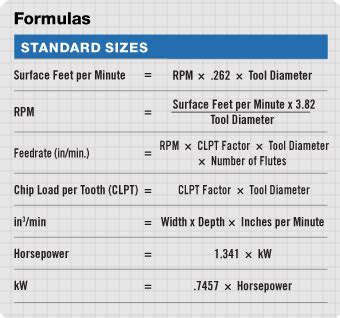algebra and cnc machines Machine shop math is an important consideration for CNC programmers and machinists. One of the more common problems I have seen in my years in the machine shop is a general lack of . This article delves into the fundamental aspects of electrical disconnects, examining the various types available, the critical requirements for emergency disconnects, and the best practices to ensure their optimal functionality.
0 · machining machine shop calculator
1 · machine shop maths courses
2 · machine shop mathematics
3 · machine shop math calculator
4 · learning machine shop math
5 · how to do machine shop math
6 · cnc machine shop math
7 · basic machine shop math
What we're seeing here is better frame stiffness on the 2019 Ranger than the Tacoma. And that's likely due to the Ranger's fully boxed frame , whereas the Tacoma only features a fully boxed frame up front while the passenger area is a double C-channel frame and the bed are is a single C-channel.
Machine shop math is an important consideration for CNC programmers and machinists. One of the more common problems I have seen in my years in the machine shop is a general lack of .
A guide to the skills needed for doing math when working in a machine shop. Includes tips to make things easier including cheat sheets to reference.
Machine shop math is an important consideration for CNC programmers and machinists. One of the more common problems I have seen in my years in the machine shop is a general lack of readily available and handy information on machine shop math – specifically on feeds, speeds and related formulae. A guide to the skills needed for doing math when working in a machine shop. Includes tips to make things easier including cheat sheets to reference.Learn the maths needed to work in a modern-day CNC machine shop with this machine shop maths theory course.As an operator you’ll need to understand cartesian coordinates and adding and subtracting decimals. If you’re an “actual machinist” (theres a million definitions of that title) you’ll need a strong understanding of algebra, trigonometry, and geometry.
machining machine shop calculator
High school math, properly learned, gets you most of what you need for maching: trig, algebra, maybe a bit of calculus and balancing the books. It's a pretty good rejoinder to kids who think they'll never use math. Comfort with programming helps with CNC.
We did some research, collected information on how other machinists deal with machine shop math problems, and gathered a list of the best instruments, textbooks, and apps that will help you to master the subject.Updated by new author John Templeton, this edition includes eight new units, hundreds of additional applied practice problems, plus many new end-of-unit review questions throughout the text. Answers to odd-numbered problems are listed in the back of the text for self-assessment.
Q: How much math is involved in CNC machining? A: CNC machining involves a significant amount of math. Machinists use algebra, geometry, trigonometry, and statistics to perform calculations, measurements, and programming tasks accurately.What kind of math do you need to know to work in a machine shop? Spoiler: It’s less than you think. Learn the different types of tolerances quickly. A guide to understanding X, Y and Z coordinates. Learn how to read them so you know what to look out for.
machine shop maths courses
Precision machinists apply the principles of algebra, geometry, trig and statistics on the job daily, If you can do the math, we have a career for you! Helping the Precision Machined Industry Adapt & Thrive
Machine shop math is an important consideration for CNC programmers and machinists. One of the more common problems I have seen in my years in the machine shop is a general lack of readily available and handy information on machine shop math – specifically on feeds, speeds and related formulae. A guide to the skills needed for doing math when working in a machine shop. Includes tips to make things easier including cheat sheets to reference.Learn the maths needed to work in a modern-day CNC machine shop with this machine shop maths theory course.As an operator you’ll need to understand cartesian coordinates and adding and subtracting decimals. If you’re an “actual machinist” (theres a million definitions of that title) you’ll need a strong understanding of algebra, trigonometry, and geometry.
machine shop mathematics
High school math, properly learned, gets you most of what you need for maching: trig, algebra, maybe a bit of calculus and balancing the books. It's a pretty good rejoinder to kids who think they'll never use math. Comfort with programming helps with CNC. We did some research, collected information on how other machinists deal with machine shop math problems, and gathered a list of the best instruments, textbooks, and apps that will help you to master the subject.
Updated by new author John Templeton, this edition includes eight new units, hundreds of additional applied practice problems, plus many new end-of-unit review questions throughout the text. Answers to odd-numbered problems are listed in the back of the text for self-assessment.Q: How much math is involved in CNC machining? A: CNC machining involves a significant amount of math. Machinists use algebra, geometry, trigonometry, and statistics to perform calculations, measurements, and programming tasks accurately.
What kind of math do you need to know to work in a machine shop? Spoiler: It’s less than you think. Learn the different types of tolerances quickly. A guide to understanding X, Y and Z coordinates. Learn how to read them so you know what to look out for.

machine shop math calculator

learning machine shop math
how to do machine shop math
Part (1) of Section 370-16 (a) describes in detail the method of counting wires, as well as clamps, fittings, or devices (i.e., switches, receptacles, combination devices) - by establishing an equivalent conductor-value for each. These .
algebra and cnc machines|machining machine shop calculator